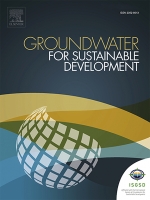Strengthening groundwater governance in rapidly urbanizing areas of the Lower Mekong Region
Abstract
Groundwater plays a crucial role in the water security, poverty reduction and sustainable development of the Mekong region. However, in many countries either the groundwater is under- utilized or over exploited and at the same time affected by multiple stresses such as rapid urbanization, population growth, climate change and climate variability. Lack of good groundwater governance, absence of
groundwater policies and laws, groundwater institutions, stakeholders’ participation and fragmented groundwater management with other aspects of socio-economic developments led to unsustainable management of groundwater in the Mekong region. The unsustainable management groundwater in the region, especially in rapidly urbanizing areas bring conflict among different sectors and vulnerable population such as poor, marginalized and ethnic people. Therefore, the proposed project aims to evaluate the current state of groundwater governance in the region and recommend ways to improve or strengthen the groundwater governance based on evidence-based understanding of groundwater availability, its use and potential conflicts under multiple stresses in the future.
Four rapidly urbanizing areas of the Lower Mekong Region: Luang Prabang in Lao PDR, Khon Kaen in Thailand, Siem Reap in Cambodia and Ba Ria-Vuong Tau in Vietnam are selected as case study areas in the project. The four areas are rapidly urbanizing areas where groundwater is the major source of water for beneficial uses.
The project, which will run for two years (including inception phase), will employ an integrated assessment approach to address the above research questions. It consists of system analysis to understand the context of groundwater and its use, the interdependences and complexities of the socio-physical system. Participatory and multi-stakeholder consultation/analysis and frame analysis will be used to capture values, interests, preferences, conflicts and interactions of actors regarding groundwater use and management. Similarly, a qualitative methodology such as review of policies, legal and institutional frameworks, reports and peer reviewed articles; interviews of relevant stakeholders will be used to analyze the current state of groundwater governance in national and local level of all areas. The analysis will be focused on whether the institutions and policies consider vulnerable groups, groundwater access as human rights.
Lead contact
Dr. Sangam Shrestha
Asian Institute of Technology, Thailand
Email: sangam@ait.asia


 Read more about SUMERNET
Read more about SUMERNET
